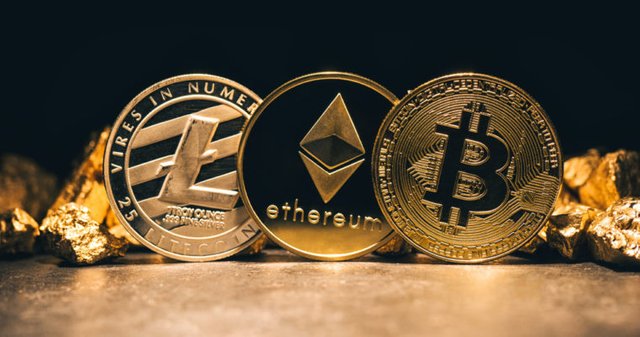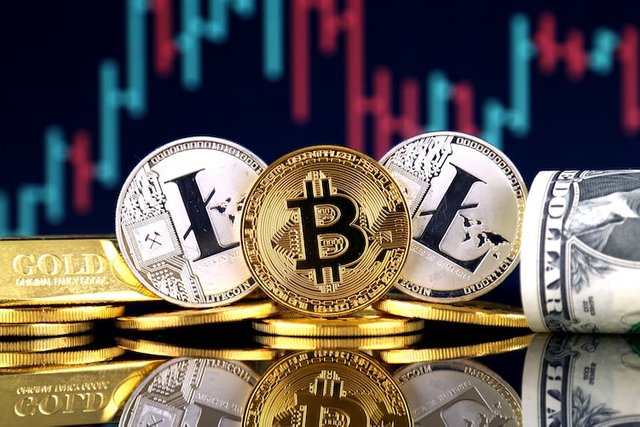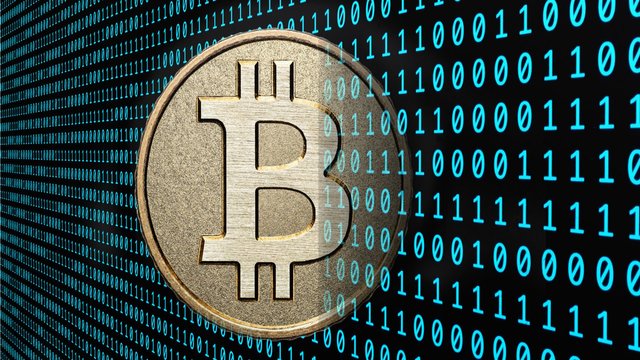THE UPCOMING BITCOIN IN 2020

A cryptocurrency is a digital currency that is created and managed through the use of advanced encryption techniques called cryptography. Cryptocurrency made the leap from an academic concept to (virtual) reality with the establishment of Bitcoin in 2009. Although Bitcoin attracted a growing number of followers in the following years, it attracted much attention from investors and media in April 2013 when it reached a record of $ 266 per bitcoin record after 10-fold increase in the previous two months. Bitcoin bore a market value of more than $ 2 billion at the peak, but a 50% jump shortly thereafter led to a furious debate about the future of cryptocurrencies in general and Bitcoin in particular. So, will these alternative currencies eventually replace conventional currencies and ever become as pervasive as dollars and euros? Or are cryptocurrencies a passing whim that will soon catch fire? The answer lies with Bitcoin.
THE FUTURE OF CRYPTOCURRENCY

Some economic analysts predict that a big change in crypto will come when institutional money comes on the market. In addition, there is the possibility that crypto is offered on the Nasdaq, which would further increase the credibility of blockchain and its use as an alternative to conventional currency. Some predict that everything crypto needs is a verified exchange traded fund (ETF). An ETF would certainly make it easier for people to invest in Bitcoin, but there still has to be a demand to invest in crypto, some of which say it might not be generated automatically with a fund.
UNDERSTAND BITCOIN

Bitcoin is a decentralized currency that uses peer-to-peer technology, with which all functions such as currency issuance, transaction processing and verification can be performed jointly by the network. Although this decentralization frees Bitcoin from government manipulation or interference, the flip side is that there is no central authority to ensure that things run smoothly or to support the value of a Bitcoin. Bitcoins are made digitally via a mining process that requires powerful computers to solve complex algorithms and crunch numbers. They are currently made every 10 minutes at a speed of 25 Bitcoins and are capped at 21 million, a level that is expected to be reached in 2140.
These features make Bitcoin fundamentally different from a fiat currency, backed by the full trust and credit of the government. Fiat currency issuance is a very centralized activity under the supervision of the central bank of a country. Although the bank regulates the amount of currency issued in accordance with its monetary policy objectives, there is theoretically no upper limit for the amount of such currency issue. In addition, deposits in local currency are generally insured against bank failures by a government agency. Bitcoin, on the other hand, does not have such support mechanisms. The value of a Bitcoin depends entirely on what investors are willing to pay for it at a given time. If a Bitcoin exchange folds, customers with Bitcoin balances cannot appeal to get them back.
BITCOIN FUTURE OUTLOOK
.png)
The future prospects for bitcoin are the subject of much debate. While financial media is being spread by so-called crypto evangelists, Harvard University professor of economics and public policy Kenneth Rogoff suggests that "overwhelming sentiment" among crypto-lawyers is that the total "market capitalization of cryptocurrencies could explode over the next five years, rising to $ 5-10 [trillion]. "
The historical volatility of the investment category is "no reason to panic," he says. Yet he tempered his optimism and that of the "crypto-evangelist" vision of Bitcoin as digital gold, and called it "nutty", indicating the long-term value "is more likely $ 100 than $ 100,000."
Rogoff claims that the use of Bitcoin, unlike physical gold, is limited to transactions, making it more vulnerable to a bubble-like collapse. Moreover, the energy-intensive verification process of the cryptocurrency is 'much less efficient' than systems that rely on 'a trusted central authority such as a central bank'.
INCREASING CONTROL

Bitcoin's main benefits of decentralization and transaction anonymity have also made it a favorite currency for numerous illegal activities, including money laundering, drug trafficking, smuggling and arms acquisition. This has caught the attention of powerful regulatory and other government agencies such as the Financial Crimes Enforcement Network (FinCEN), the SEC and even the FBI and the Ministry of Homeland Security (DHS). In March 2013, FinCEN issued rules that define virtual currency exchanges and administrators as money service companies, bringing them within the scope of government regulation. In May of that year, the DHS froze a bill from Mt. Gox - the largest Bitcoin trade show - held at Wells Fargo, claiming it had violated anti-money laundering legislation. And in August, the Department of Financial Services of New York issued a summons to 22 emerging payment companies, many of which have dealt with Bitcoin and have asked about their measures to prevent money laundering and to ensure consumer protection.
ALTERNATIVES TO BITCOIN

Despite recent problems, Bitcoin's success and growing visibility since its launch has led a number of companies to unveil alternative cryptocurrencies, such as:
Litecoin - Litecoin is currently considered Bitcoin's biggest rival and is designed to process smaller transactions faster. It was established in October 2011 as "a coin that is silver for Bitcoin's gold," said founder Charles Lee. Unlike the heavy computing power required for Bitcoin mining, Litecoins can be mined by a normal desktop computer. The maximum limit of Litecoin is 84 million - four times the 21 million limit of Bitcoin - and it has a transaction processing time of approximately 2.5 minutes, about a quarter of Bitcoin.
Ripple - Ripple was launched by OpenCoin, a company founded by technology entrepreneur Chris Larsen in 2012. Like Bitcoin, Ripple is both a currency and a payment system. The currency component is XRP, which has a mathematical basis such as Bitcoin. The payment mechanism makes it possible to transfer money in any currency to another user on the Ripple network within seconds, unlike Bitcoin transactions, which can take up to 10 minutes to confirm.
MintChip - Unlike most cryptocurrencies, MintChip is actually the creation of a government agency, in particular the Royal Canadian Mint. MintChip is a smart card that contains electronic value and can transfer it securely from one chip to another. Like Bitcoin, MintChip does not require personal identification; Unlike Bitcoin, it is supported by a physical currency, the Canadian dollar.
THE FUTURE

Some of the limitations that cryptocurrencies are currently facing, such as the fact that a person's digital fortune can be erased by a computer crash or that a virtual vault can be searched by a hacker - can be overcome in time by technological advances. What is harder to overcome is the fundamental paradox that bedevils cryptocurrencies - the more popular they become, the more regulation and government supervision they are likely to attract, which undermines the fundamental premise for their existence.
Although the number of merchants accepting cryptocurrencies has been steadily increasing, they are still very much in the minority. To use cryptocurrencies on a larger scale, they must first get broad consumer acceptance. However, their relative complexity compared to conventional currencies is likely to scare most people apart from the technologically skilled.
A cryptocurrency that wants to be part of the regular financial system may have to meet very different criteria. It should be mathematically complex (to prevent fraud and hacker attacks), but easy for consumers to understand; decentralized but with adequate consumer protection and protection; and maintain user anonymity without being a channel for tax evasion, money laundering and other nefarious activities. Since these are formidable criteria to meet, is it possible that in a few years the most popular cryptocurrency may have attributes that fall between heavily regulated fiat currencies and today's cryptocurrencies? Although that possibility seems remote, there is no doubt that Bitcoin's success (or lack thereof) in the current cryptocurrency can currently determine the fate of other cryptocurrencies in the coming years.
DO YOU HAVE TO INVEST IN CRYPTOCURRENCY

If you are considering investing in cryptocurrencies, it may be best to treat your "investment" in the same way as any other highly speculative company. In other words, acknowledge that you run the risk of losing most of your investment, if not everything. As mentioned earlier, a cryptocurrency has no intrinsic value, apart from what a buyer is willing to pay for it at a given time. This makes it very susceptible to huge price fluctuations, which in turn increases the risk of loss for an investor. Bitcoin, for example, fell from $ 260 to around $ 130 in a six-hour period on April 11, 2013. If you can't tolerate that kind of volatility, look elsewhere for investments that suit you better. Although opinions are still deeply divided on the merits of Bitcoin as an investment - supporters point out the limited supply and its growing use as value drivers, while opponents see it as just a speculative bubble - this is a debate that a conservative investor is doing well would avoid.
CONCLUSION
The rise of Bitcoin has sparked a discussion about his future and that of other cryptocurrencies. Despite Bitcoin's recent problems, success since its launch in 2009 has led to the creation of alternative cryptocurrencies such as Litecoin, Ripple and MintChip. A cryptocurrency that wants to be part of the regular financial system should meet very different criteria. Although that possibility seems remote, there is little doubt that the success or failure of Bitcoin in dealing with the challenges it faces can determine the fate of other cryptocurrencies in the coming years.